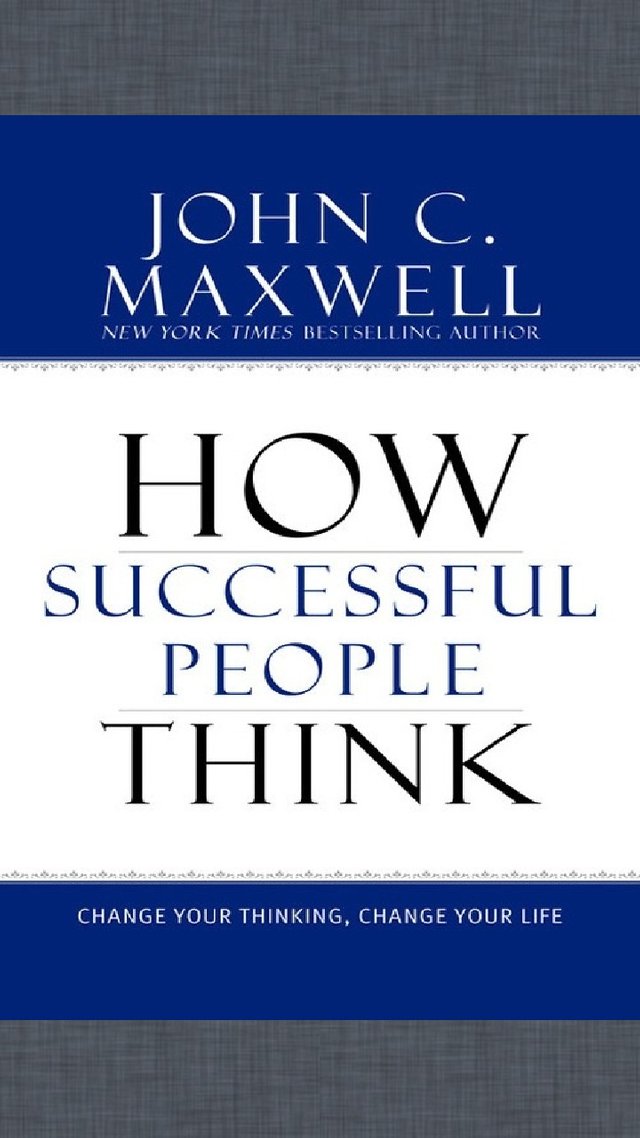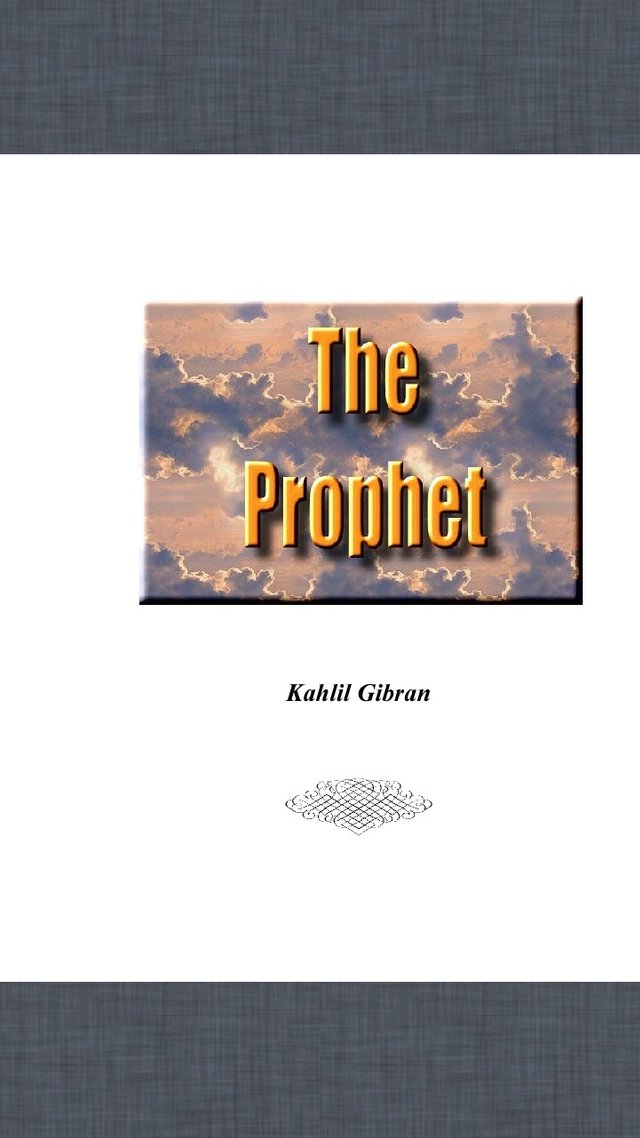
INTRODUCTION
Well, am not going to say I should have done this a few days ago even though I just said it, but still I should have done this a few days ago. I guess I must have been lazy and my throat hurts (not that am typing with it anyways, lol). The book on review today is one by one of my favorite authors. "how successful people think" by John C. Maxwell. It's well grounded book and thinking and I must say I job well done. Well, without further Ado, and away we gooooooo....
MY VIEW
overall, the book was about your mind. The power it's possess and unleashing that thinkability in you, it was a brilliant job I must say. So am guessing you know that the book is about how you should think to be successful. Fun fact, we all have attached different metric to been successful. Someone feel it's been on Forbes list, others think it's having the hottest wife and some even think is having supernatural powers. Seriously, if you'd talk to people you would realise how different people think. The bottom line is that you have and set good values that you have control over like honesty, confidence, kindness, etc.
John started off the boom with the so-obvious why you need to change your thinking and how you can, and that's the part truly most appreciate from this work. He tries to progress help. He made mention of finding a place for think, this is very important. Find a place to land your thoughts, it could be anywhere, the kitchen, the closet, ironically mine is in the bathroom, I know, it's hilarious. I actually am able to thinking about my day and all I have learnt and haven't when I stay below the shower and water pours down, it allows my mind to wander. Sometimes the shower ain't rushing and I'd have to scoop water from a container and pour it over my body and that was a little distracting. John started of with big picture thinking and the need to think big just like Ben Carson would say. Successful people always think of the greater good, of their contribution if it's to the benefits or detriment of the organization. When am at work I try to imagine what am doing when am not been supervised and say if it's for the greater good. Learn to see the bigger picture, beyond you. He gather sent on to analyse another type of thinking, focused thinking. The need to lay down goals, concentrate and follow through. I once remember when I attended this group fellowship just for fun of it and I was distracted by the vehicles that zoomed past us, the speaker made me realize that been focused is one of the traits of a great mind and it's takes work. It does, it's not easy. It would make you realise you aren't superman, you have your threshold, your breaking point. At this point of the book John talked about creative thinking, well, the book wouldn't be complete without it, as a matter of fact any human being won't he talked about the need to think creatively, connect the dots, spending time with creative people and also developing a creative environment. Think outside the box, a wise friend (well, not so though) once said "was there ever any box" why confine your self to the rules. John points out a very important one when he encouraged for realistic thinking, I.e. seeing what is and not what you wish for. It's not about been negative, it's about knowing what is, how bad it is, what are the chances, thereby preparing you for the task that lay ahead. Most importantly, realistic thinking helps you picture the worst case scenario thereby preparing you. I liked that pastor John was able to share his experience on strategic thinking (and yes he is a clergy man). The need to plan your life and live the plan, a month ahead and give room for your self, personal time and that stuff.
“Nothing is so embarrassing as watching someone do something that you said could not be done.”—SAM EWING
The above quote summarise what John was trying to explain about possibility thinking. I am guilty though, one time in my life, not wanting to try it again and writing it off and then boom the person did it and I stood there in shock and shame. I felt like my genotype changed to SS, lol. Possibility thinking allows you explore the chances that this could be this and that could be that, entertaining ambiguity and rejecting certainty. It's a beautiful thing if you try it, I love that moment in my life when am looking at my computer system and I am thinking what are the chances that if I Click this it won't bring something fun, alas, I discovered s feature that I was pretty sure no one else knew. Reflective thinking is very important, it's like allowing what you have thought to simmer down. It's key, thought before action. If you decide, whatever you choose, make sure your question popular thinking. It saves you from getting to that impasse. Try new things. Don't just follow it, think why it is. Because half of my colleagues says it's this don't mean it is, don't just digest it and swallow, you have to question and know why. I particularly Love a this cartoon "Rick and Morty". A place where Rick makes a joke and everyone laughs and then he told them he made it up "think for your self, don't be cheap", he said. Shared thinking is vital. None of us is no where near as smart as all of us, Ken said. Bring people to the table and speak, learn, share. Shared thinking is beneficial than solo thinking.
John talked about unselfish thinking. It's one thinking that could single handedly change everything. This type of thinking and how John put it makes it a complete life lesson. Put others first, try not to let your ego or emotions cloud your judgement. Give while your live, anonymously. This part of the book is one you might need to encounter by yourself. John endes the book with bottom line thinking. See, you need to know why you are doing that, you need to know how it all started, you need to know how it all came about. Bottom line thinking is helpful, it has help organizations revamp their system for the better and has helped individuals redefine their Purpose
MY reVIEW
Its a round of applause for this brilliance. I always try to emphasize the need for authors to try and put a little bit of themselves and their experiences into thier work and John didn't disappoint. Am particularly not content with the concise explanation of his point, I feel its a little flat, books like this could go in volumes. John also did well with the little thinking assessment at the end of each chapters. It's a fantastic metric.

CONCLUSION
okay firstly guys, I apologize the delay in this review but hey, cut me some slack, am staying awake late now just to write this one. Last weeks book was good, next weeks book would be drums roll "The prophey" by kalil gibran. It's a book that I have seen it excerpt from time to time and I think I would be great, till next time guys, it wasn't easy writing this so don't think........ Oh wait, THINK bwhahaha.

Hello @stevenson7,
Wow, thank for you sharing such a detailed and in-depth review of John C. Maxwell's "How Successful People Think." Indeed, realistic thinking as well as strategic thinking are very important when it comes to being a successful person. It sounds like there's a lot that we can all learn from reading this book! I also wonder if there have been studies conducted by academic scholars that investigate the qualities of successful people. You’ve just got a full upvote from us. Looking forward to reading future posts!
Best Regards,
Blue Baikal
https://www.bluebaikal.io/en
✬ Join the contest at Blue Baikal and receive rewards! ✬
✬ --- Go to Blue Baikal --- ✬
Downvoting a post can decrease pending rewards and make it less visible. Common reasons:
Submit
Congratulations @stevenson7! You have completed the following achievement on the Steem blockchain and have been rewarded with new badge(s) :
You can view your badges on your Steem Board and compare to others on the Steem Ranking
If you no longer want to receive notifications, reply to this comment with the word
STOPVote for @Steemitboard as a witness to get one more award and increased upvotes!
Downvoting a post can decrease pending rewards and make it less visible. Common reasons:
Submit